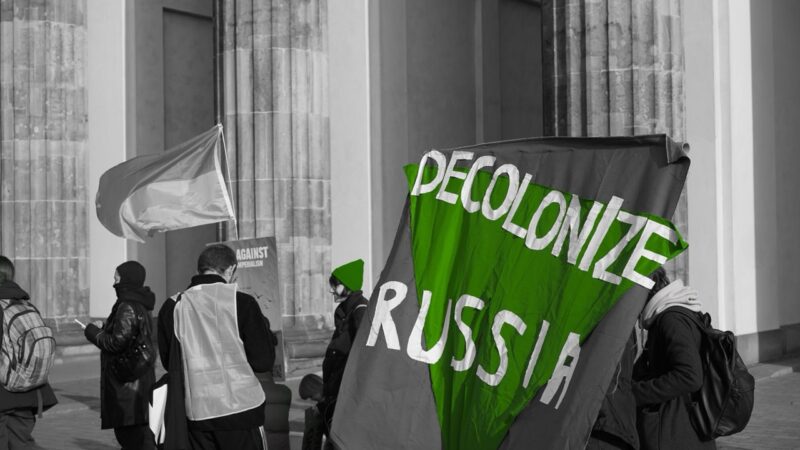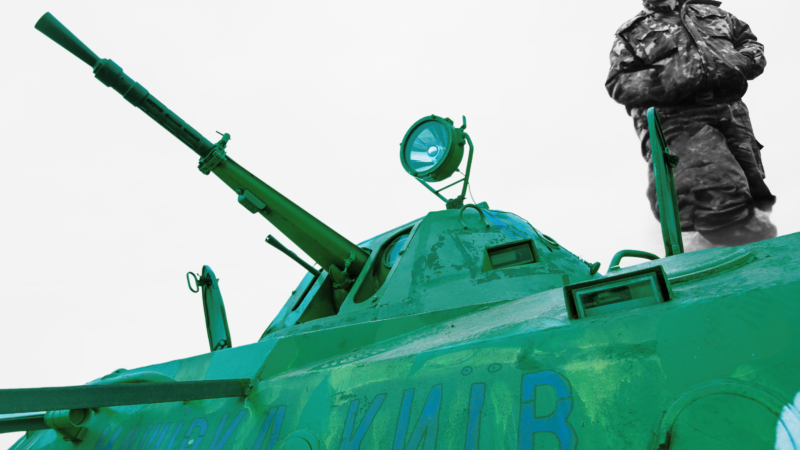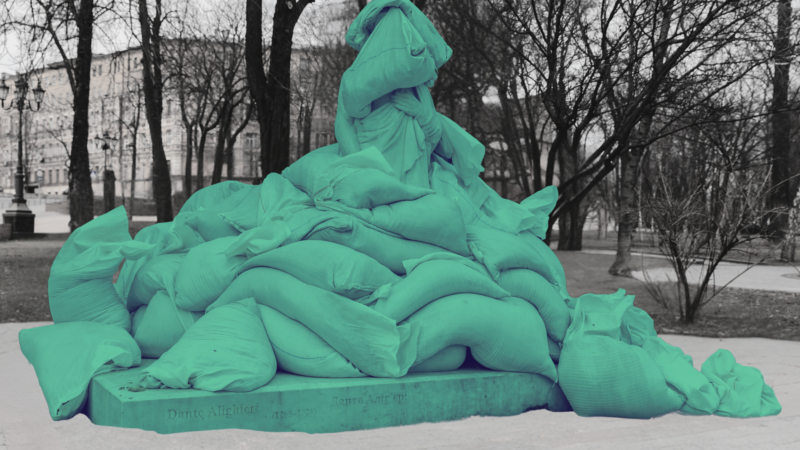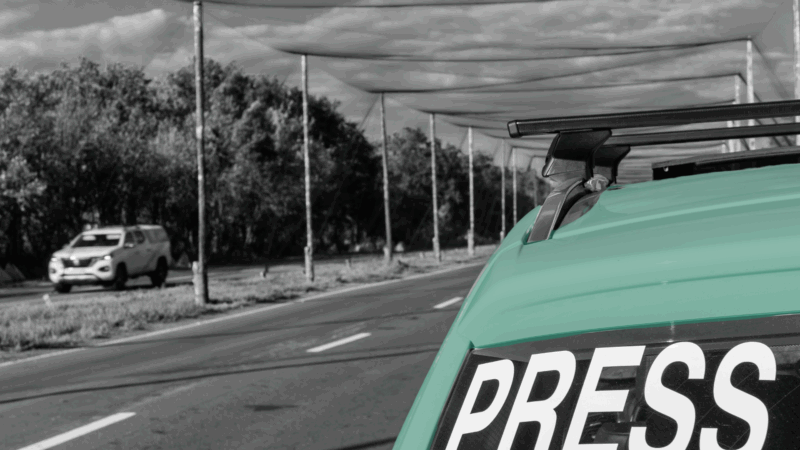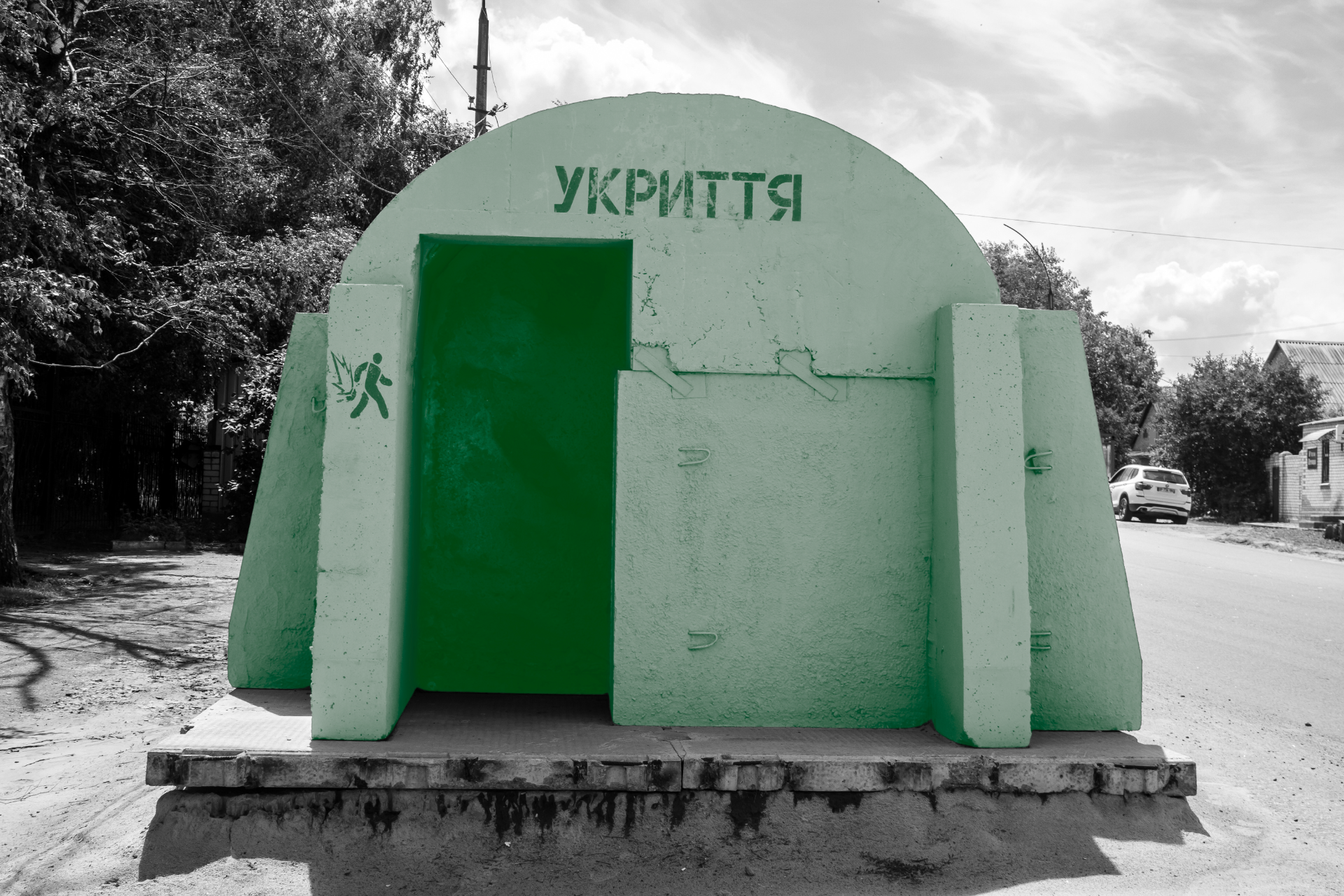Interview with Donnacha Ó Beacháin | “Ukrainian refugees are gradually finding their places in Irish society”
Ostap Kushnir: What are the reasons for the government and society of Ireland to support Ukraine so profoundly in its war effort, especially on diplomatic and humanitarian levels?
Donnacha Ó Beacháin: Because of centuries-long anti-imperial struggles, there is a tendency in Ireland to identify with the underdog, those who fight against injustice. For example, during the 1950s and 1960s there was great sympathy in Ireland for the decolonizing struggles of nations in Africa and Asia against European powers. Up until the early 1990s, there was a very strong identification with the black majority population in South Africa; protests and boycotts against the apartheid regime occurred regularly at the levels of government and civil society. Today, there is a consistently strong identification with the people of Palestine.
Irish interest in Ukraine had peaked before—in 2014 with the annexation of Crimea and war in the Donbas—but then it subsided, as in most of Europe. Last year’s invasion was different: its brutal character shocked everyone. Irish people have always empathized with David in any struggle with Goliath, so the nakedly imperial and destructive character of Russia’s invasion triggered a strong reaction in Ireland. People were appalled by the suffering they saw. The invasion happened on the borders of the EU, of which Ireland is a part, and that spurred additional empathy and willingness to help. Within a very short space of time, Ireland accommodated tens of thousands of Ukrainian refugees. That also meant that Irish people could hear firsthand from Ukrainians about what was happening in their country.
The message from Ukraine, particularly as articulated by President Volodymyr Zelensky, carried extraordinary power and clarity. Irish people understood that the conflict concerned not only Ukraine but all of Europe, even the world. Moreover, Zelensky made a smart move to contact Ireland, as well as other members of the EU, directly and specifically. As with similar addresses to national legislatures, his message to the Irish Parliament back in April 2022 was carefully crafted for the local audience. For example, Zelensky made reference to hunger as a weapon and condemned Russia’s interruption of Ukrainian grain exports through the Black Sea. That resonated in Ireland because of how hunger has been weaponized against the Irish people in the past. In general, the bitter experience of hunger unites Irish and Ukrainians, because both nations survived artificial famines while under imperial rule.
I had the honour of introducing President Zelensky to Irish university students last November, when he joined us via a video link from Kyiv to answer questions. During the discussion, he paid tribute to Ireland’s warmth in taking in Ukrainian refugees and concluded by encouraging people to cherish their freedom. He compared freedom to good health—a person fully appreciates it only after it is threatened or gone. As you can imagine, Zelensky’s words had quite a profound effect on the students.
Another thing to keep in mind is that while Ireland is politically active, it is militarily a neutral country. It has a very small army; Ireland spends less on defence than any other EU member in terms of per capita contributions as a percentage of GNP. Therefore, Ireland could not participate in Ukraine’s war effort by providing tanks, for example. Instead, the government has concentrated on providing non-lethal military aid and supports people who have fled Ukraine. It is worth mentioning, however, that Ukrainian forces have been trained by Irish soldiers in things like de-mining and bomb disposal.
When President Zelensky visits Western Europe, he usually delivers a three-pronged message. He is looking for means of defence. He is looking for sanctions on Russia. And he is looking for endorsements of Ukraine’s EU membership bid. Ireland has been strong in responding to two of these three requests. Lacking on the military side, it has been at the forefront of advocating sanctions against Russia and supporting Ukraine’s EU membership bid. This year, Ireland celebrates half a century in the European Union. It experienced the transformative effect that membership can have on a country and society. Therefore, Ireland is enthusiastic to bring Ukraine into the Union so that it can also enjoy peace, prosperity, and security.
Kushnir: How do you see the long- and short-term effects of the massive migration of Ukrainians to Ireland?
Ó Beacháin: They were and remain very welcome in Ireland. However, the unexpected influx—Ukrainians now constitute 2 percent of Ireland’s population—has increased the already substantial strain on the housing system. Ireland had already been undergoing a prolonged housing crisis before February 2022; the national population was rapidly expanding and the government could not satisfy accommodation needs. Therefore, most Ukrainians who arrived in Ireland were placed in hotels, government-controlled buildings, or private facilities.
In the Irish media I pointed out that in 2008 the Georgian government built thousands of modular houses within months when people fled from South Ossetia. And those houses are still there, they are being lived in. The Irish government, for reasons that are not entirely clear, has been unable to complete a similar task. It is certainly not because of a lack of will; it seems that myriad bureaucratic problems have prevented houses being built quickly enough.
In cultural terms the Irish-Ukrainian interaction has been very positive. Most Irish people had very little interaction with Ukrainians before Russia’s full-scale invasion last year. Today, Ukrainians are gradually finding their places in Irish society. Here in Dublin, I have several students taking my modules who last year fled Ukraine, including from Mariupol. They have integrated very well. Some Ukrainians will undoubtedly stay in Ireland after the war subsides, although I think that the majority will want to go back to Ukraine. I know some who have already returned. The long-term effect of Ukrainians staying in Ireland will be the strengthening of ties—above all, cultural connections—between the two countries.
Kushnir: Recently, in light of the 25th anniversary of the Good Friday Agreement, which put an end to the decades-long clash between the Irish and British, the Western media started discussing the probability of arranging something similar for Ukrainians and Russians. In your opinion, can the Good Friday Agreement provide a point of reference or guideline to end this particular war?
Ó Beacháin: The short answer is no. The ongoing Russian invasion of Ukraine and the Troubles in Northern Ireland are fundamentally different. The Good Friday Agreement was negotiated by two democratic and sovereign governments who shared a common goal of moving beyond destructive conflict. This was very different from what you have with Russia and Ukraine today. Russia, a pariah dictatorship, is bent on a genocidal campaign against Ukraine. During the late 1990s the governments in Dublin and London guided the parties in Northern Ireland toward an agreement which helped transition society away from armed conflict. Their mutual interest was to get away from zero-sum politics, which had dominated Northern Ireland for decades.
By contrast, there is no win-win scenario when it comes to Russia and Ukraine. Ukrainians must regain and retain all of their sovereign territory. Otherwise, the foundations of international law will be fundamentally undermined.
Moreover, 25 years ago important international actors were interested in resolving the conflict in Ireland. Bill Clinton’s presidency, combined with bipartisan support within the US Congress and the mediating role of Senator George Mitchell, all helped produce the Good Friday Agreement. The European Union provided financial assistance to underpin the peace process. Everybody shared the same interest in ending the Troubles. As for the current war in Ukraine, there is no similar unity of purpose among the relevant actors.
Therefore, I don’t see how the Good Friday Agreement can be used as a point of reference for ending Russia’s invasion of Ukraine.
Kushnir: How has the perception of Ukraine changed in Ireland since February 2022? You have already mentioned a few details, but can you elaborate a bit further?
Ó Beacháin: The national and international perception of Ukraine, as well as Russia, has changed fundamentally. The Irish—and Europeans in general—have acknowledged that they had not listened to Ukrainians carefully enough. For years, the government in Kyiv and its supporters warned about the Kremlin’s aggressive intentions. The Kremlin would characteristically depict these warnings as the product of Russophobia. But as you know, a phobia is an irrational fear of something. Looking at what has been happening during the last 18 months, there is nothing irrational about being afraid of Russia, especially if you are Ukrainian. It is Russia that has proved to be Ukrainophobic.
A lot of people in Ireland are now very familiar with the details of the war. Russia’s invasion and Ukraine’s heroic defence are daily news stories. Irish affinity with Ukrainians has blossomed. Before the invasion, many considered Ukrainians to be somehow outside the European club, the borders of which roughly overlapped with those of the EU. Today, Ukrainians are very much considered as “us”—indeed, “the best of us.” Many people in Ireland understand that it is not just Ukraine fighting Russia but Russia fighting Europe with Ukraine being the front line. There has been strong Irish support for bringing Ukraine into the EU as quickly as possible, even though it is a very complicated process that requires unanimity and the political will of all participating governments. However, I think the emotional decision has already been made, which in some respects is the most fundamental thing. The politics will inevitably follow.
In turn, the perception of Russia has plummeted. Despite being a dictatorship, Russia was still regarded as an integral part of the European economy before the invasion. It was largely business as usual between the EU and the Kremlin, even after the annexation of Crimea. The completion of Nord Stream 2 provides ample evidence of this. However, everything changed after February 2022. This war was supposed to be a demonstration of Russian power. In fact, it has been the very opposite. Far from being the global political heavyweight it projected, this war has emphasized how Russia’s status is that of a resource-rich regional bully. Russia is increasingly weak and isolated. Its only firm allies—those who vote with Russia at the UN—are a small cabal of fellow dictatorships, the personal fiefdoms of Kim Jong Un, Bashar Al-Assad, and Aliaksandr Lukashenka. I think it will take a very, very long time for Russia to be considered as anything other than a brutal aggressor. It is not in the foreseeable future.
Kushnir: Is fatigue from the war growing in the region—specifically, in Ireland?
Ó Beacháin: I would not call it fatigue. Certainly, there is an increased familiarity with the war. And the longer a war persists—or indeed any issue, however grave—the greater the risk of people losing interest or simply being distracted by other problems, not least their own personal challenges.
In this sense, dictatorships have a comparative advantage over democracies when waging a war. Dictatorships can ignore public opinion to a large extent. For states like Russia, it matters little what people think because the Kremlin can throw its citizens into the military effort against their will. Democracies are different, they depend on popular opinion. People are not going to spend money on supporting Ukraine unless they are sure that such support is the right thing to do. If public opinion changes, political leaders will likely feel compelled to adjust the levels of assistance.
So far, there has been no diminishing of support for Ukraine—quite the opposite, as can be observed from the increased supply of ammunition and weapons. Political backing for Ukraine’s EU membership bid has also augmented over time. But the risk of fatigue exists. Vladimir Putin’s biggest potential weapon is Western collective indifference. The longer the war continues, the greater the risk is that apathy might set in.
Hearing of so many atrocities can desensitize people. It is easy and understandable to get dispirited when one gets a seemingly endless stream of horror arising from Russia’s invasion of Ukraine. This is why, I think, Ukraine is so persistent in planning a counteroffensive. It needs to show results because otherwise, people in the West might conclude that the war has reached a stalemate, and this could affect the amount of military and financial support they are willing to provide to Ukraine. Ukrainians know well that Russia will not return occupied territories through negotiation and that any final settlement—be it negotiated or imposed—will reflect the realities on the battlefield. If Russia is not forced out of Ukraine, it will consolidate its territorial gains and freeze the conflict indefinitely.
The Ukrainian government has been very astute in how it interacts with its partners. For example, in the US President Zelensky was very conscious of the need to express gratitude for the support already provided. If Americans felt that Ukraine was somehow ungrateful, that would play into the hands of those in the US—and they are not few or without influence—who believe that support for Ukraine should be radically reduced, if not halted altogether. Thus far, President Zelensky has pulled off remarkably well the delicate balancing act of conveying appreciation while simultaneously requesting more assistance.
Kushnir: If you were to summarize, what have been the major achievements and failures of Ireland and the EU in addressing the war?
Ó Beacháin: Let us look at the failures first. Ukraine was not provided with enough weapons at the very beginning. There is a strong argument that if Ukraine had received what it asked for in a timely manner, this war would have ended already. During President Zelensky’s visit to the US, a Ukrainian journalist, Olga Koshelenko, put a very good question to the host, President Biden. She asked, more or less, why, instead of drip-feeding supplies to Ukraine—some ammunition now, some later—Americans would not supply the defending army with everything the US had to give at once, so Ukraine could liberate all territories sooner rather than later. Biden did not answer that question satisfactorily.
However, the decision to drip-feed the Ukrainian army is not one confined to the US. The EU stockpiles very little weaponry and ammunition. For decades, following the collapse of the USSR, European states complacently believed that they would never be attacked. European democratic societies put pressure on their governments to redirect money to much-needed domestic services such as health and education. They saw defence as a distraction that was not worth the investment. The EU was therefore ill-prepared for Russia’s full-scale invasion of Ukraine—a big failure that it continues to grapple with.
Another failure was the lukewarm reaction to the annexation of Crimea and the resulting acquiescence to war in the Donbas. Sanctions were very weak then. The EU put a lot of effort into trying not to provoke Putin, with the result that far from being punished for aggression, Putin was emboldened. All this caution did not avert war—it made it much more likely. Moreover, Europe’s reliance on Russian energy encouraged Moscow to believe there would be no meaningful or effective response to a full-scale invasion of Ukraine. So, when Putin launched his murderous assault in 2022, he seems to have expected that the EU would tolerate it, as it had acquiesced to his conquest of Ukraine’s territories in 2014.
The EU’s reaction to the events of February 2022 was extremely slow. Many decision-makers could not predict how the war would evolve. There was a widespread expectation that Ukraine would be militarily defeated within days, and therefore some felt that the losing side should not be armed unnecessarily. Only when Ukrainians stopped the invasion and repelled Russia’s best units did the EU start mobilizing. Notwithstanding the confusion and divisions within the EU, it eventually managed to get a grip and start acting cohesively with a clear direction. But it did so very slowly.
Today, there are still people in the EU who would probably prefer a stalemate or a frozen conflict to Russia’s defeat. I said earlier that there is no win-win situation to this war. A Russian defeat is necessary to protect Ukraine’s sovereignty in perpetuity but also as a matter of justice, to punish those responsible for all the atrocities.
But, again, this necessity still appears unacceptable for many. You may remember that in August 1991, just three weeks before Ukraine declared its independence, the senior George Bush travelled to Kyiv and tried to persuade the Ukrainian people to stay in the USSR and give Mikhail Gorbachev a chance. Bush did so because he supported the status quo. Western decision-makers preferred the continuation of the Soviet Union to an unknown alternative, even though the demise of the USSR meant independence for so many nations that had been forcibly incorporated into the Bolshevik empire. Instead of wholeheartedly supporting Ukraine’s independence, many in the West feared the unpredictability of change. They could only see risk, a chain of events that might spin out of control. I think that until last year, a similar logic applied in dealings with the Kremlin. The desire not to attract Putin’s ire eclipsed any impulse to help Ukraine.
As for achievements, the EU and the US have provided Ukraine with unprecedented economic support. Moreover, promises have been made to play a leading role in the postwar reconstruction effort. If you add to this the enthusiasm about helping Ukraine join the European Union, the growing isolation of Russia, and diminishing dependence on Russian energy, you end up with several breakthroughs that would have taken a much longer time to accomplish if not for the war.
